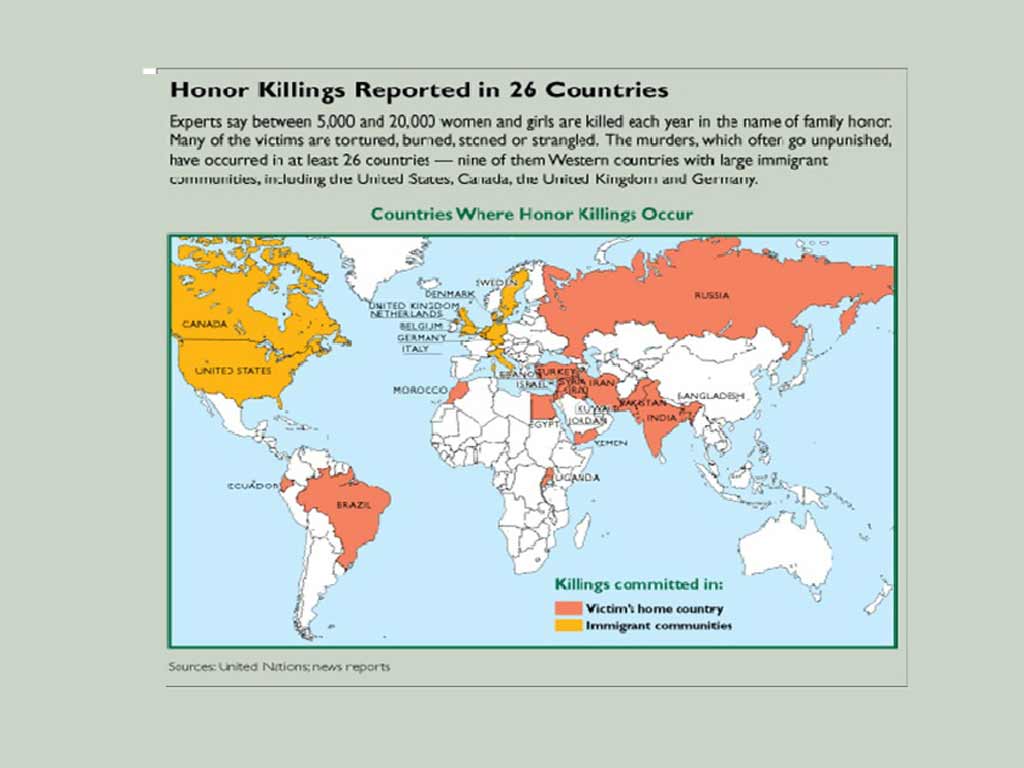About two weeks ago, it was reported that a 20 year-old girl in Dubai drowned, as her father stopped lifeguards from saving her. According to reports, the man said that he “prefers his daughter being dead than being touched by a strange man.” This man’s belief kept the lifeguards from saving his daughter.
A lesser-known fact, however, is that this incident did not occur recently – further reports have suggested that it dates back to 1996.
Regardless of when the event occurred, this incident raises the issue of honor, which is not limited to any time period, but more importantly, a shocking conversation that we need to draw long; tired and ‘old’ as it may be, it remains the reality in many cultures.
The Question of Honor
Some studies have described honor as having two meanings. It can either refer to having strong moral principles and acting accordingly, or to show value to your relationship with another person. Other studies have suggested that honor is the value of people as determined by themselves, as well as by society:
“Honor is the value of a person in his own eyes, but also in the eyes of his society. It is his estimation of his own worth, his claim to pride, but it is also the acknowledgment of that claim, his excellence recognized by society, his right to pride.”
In the Middle East and subcontinents, ‘honor’ is viewed within a social context, in which an individual’s honor is his/her value in accordance with societal norms. Furthermore, daughters, in particular, are expected to represent their family in an honorable manner.
No Honor in Killing

The disheartening fact is that these incidents have been reappearing on the front page of newspapers for years, only becoming more disturbing and violent each time. Daughters, mothers and sisters – of all ages, nationalities and religions have their lives snatched away, in the name of honor. The Honor Based Violence (HBV) awareness network reported that 5000 honor killings occur worldwide every year.
Is this so-called honor more valuable than your daughter’s or sister’s life? If so, how can burning, knifing or strangling her change the manner in which society sees your family? If anything, it will be the contrary. And is a society that demands killing for ‘honor’ even worth being a part of?
Let’s make your blood curdle
Here are some jaw-dropping instances:
As a punishment for having a romantic relationship with her cousin, 17 year-old Phool Jehan was beheaded by her two elder brothers in Northern India – and it didn’t end there. Her brothers carried her head around the village, publicly expressing their disapproval. Based on statistics, at least 1,000 similar cases happen in India every year.
Meanwhile, in Pakistan, 25-year old Shabana Bibi was beaten, doused in petrol and set ablaze. Her husband, Muhammad Siddique and his father punished Shabana because she left the house (to visit her sister) without informing them or getting permission.
According to HRCP statistics, there has been a 15% increase in honor killings from 2013-2014.
In Tunisia, 13 year-old Aya died from fourth degree burns after her father burned her to death for walking home with a male classmate. Tunisian citizens were shocked beyond comprehension, because honor killings are not as commonplace.
In an evolving modern world, women who choose to break free from tradition are brutally tortured. Why?
There is no honor in killing. These incidents should not be labeled as “honor killings” because there is nothing honorable or respectable about taking away someone’s life, simply because they chose to break free from patriarchy and live life on their own terms.
If a man let his daughter drown, he should be condemned by the sane. Shouldn’t he?
“If you can’t be a good example, you’ll just have to be a horrible warning.”
– Catherine Aird










